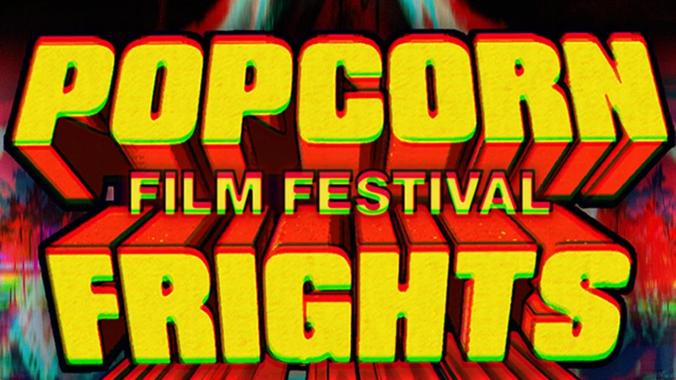

Family can be a complicated strait to navigate, and it’s something that we might never escape from no matter how hard we try. The trauma endured due to familial relations can echo through the rest of our lives, shaping us into something we’d rather not be. Pirie Martin’s Psychosis is an off the wall look at just how that phenomenon sticks with us throughout life and how it lingers long after we think we’re done with it.

Psychosis is the story of Cliff van Aarle, a criminal fixer who is hired by a pair of low-level drug dealers after something goes wrong at one of their deals. Cliff has the unique ability of an eidetic memory that, while useful, manifests itself rather intensely through schizophrenic-esque voices that unfortunately aren’t fond of being quiet. Soon, Cliff finds himself drawn into a strange neo-noir nightmare of mental torture, bargain bin superhero vigilantes, zombies, evil genius hypnotists, and a healthy dose of family trauma.

The most striking thing about this film is the lo-fi, experimental, almost student film quality it has. The black and white cinematography gives it the feeling of actually being lost in the urban underworld of Adelaide, and the occasional switch to Cliff’s point of view make it even more jarring and unbalanced. The result is a frenetic, rabid film that feels like it’s stumbling down a dark alleyway on a bender even during its quiet moments. It’s like Guy Ritchie via David Lynch via Shinya Tsukamoto. The 1.9:1 aspect ratio heightens the claustrophobic flavor of it all, forcing the audience into an uncomfortable space visually, especially in the film’s final act when shit flies entirely off the handle. But by far the most effective device of making it seem so unhinged is the voices. Cliff’s schizophrenia is presented as a near constant stream of insults, observations, or just generic chatter in a whole variety of voices. Some are helpful, in that they point out things that Cliff’s conscious mind might’ve missed, but even then, they’re almost always belittling and mean. It could easily come off as off-putting and overwhelming, but Martin is a good enough filmmaker to strike a balance so instead of being too much this aspect is just enough to put the viewer in a place like Cliff’s: we spent a good amount of time struggling to focus on someone actually speaking to him while the voices are yammering away in stereo. It’s gloriously upsetting.

Psychosis is not so much about how the horrors of the past return to ruin the present, but more so about how the horrors of the past return to make a bad situation even worse. Trauma, when not dealt with properly, always comes back in the end to haunt us. It’s not a far stretch to see Martin’s dragging Cliff on a nightmare ride through the criminal underworld in search of the enigmatic Joubini and his hordes of zombies as a metaphor for confronting emotional wounds you thought were long healed but instead have been festering the entire time. It’s a darkly kaleidoscopic journey that is terrifying in it’s very simplicity, and in the end is extremely rewarding.




